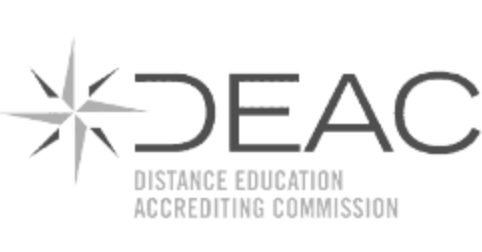It’s No Longer Enough to Learn from the “School of Life.”
It used to be all anyone needed to be able to earn an income was the know-how to complete a certain task and the ability and willingness to show up and do it. Unfortunately, that is no longer the case as employers now insist upon an accredited high school diploma before moving up past entry-level to any sort of management position. Even the local stock-person, mall cashier, or restaurant server is typically required to have a high school diploma before becoming an assistant or shift manager. What’s more, for those wishing to pursue trade school for jobs like mechanic, electrician, dental hygienist, computer programmer, or other positions, a high school diploma is a non-negotiable requirement.
For colleges and universities, a high school diploma is the best way for someone to show they know what it takes to be a self-directed learner and play an active role in their own educations. Very few students will graduate from high school with grades good enough for college without taking at least a little bit of personal responsibility for completing assignments on time and studying the course material. Without a high school diploma on hand for the college application process, the road to advancing your education becomes a lot slower and more difficult to navigate.
Equivalent Doesn’t Mean Equal.
Some people try to play off a high school diploma as “just a piece of paper.” Most often, these are the people who decided they were not willing to put in the work to complete their own high school diplomas, or, they are the people trying to get students to enroll in GED or other equivalency programs. The difference between these programs and an accredited high school diploma are important.
- Only accredited programs ensure that all coursework meets the same requirements as traditional brick-and-mortar students.
- GED and equivalency programs often are not considered “valid” by employers and others who have high school diploma requirements.
- Even with a GED or equivalency, job seekers and college applicants may still be required to have a fully accredited high school diploma.
Citizens High School Makes Accredited More Accessible.
We understand that the traditional high school model doesn’t fit every student. We also appreciate that just because some students need to have jobs, care for family members, or raise their own children, it doesn’t mean their only option is to drop out and give up on their high school diploma. All too often, students and parents are led to believe that night school and GED programs are the only options that exist – but that’s only true for bricks-and-mortar schools.
Citizens High School offers a nationally and regionally accredited online platform that gives students not just one, but two different ways to earn a fully accredited high school diploma:
- Career or Job Track – a fully accredited diploma that meets the requirements of employers and trade schools alike.
- College Track – a fully accredited diploma with a little additional coursework typically expected for admission to most 4-year colleges and universities.
The only difference between an accredited bricks-and-mortar high school and the Citizens High School experience is how and where it takes place. Thanks to a robust, fully online platform that can be accessed any time, in any location with an internet connection.
- Students can study in the evenings, on weekends, and even during vacation breaks.
- GED and other simliar programs may require you to take in-person classes before you can take any exams.
- You may also have to take exams in-person at a designated testing center during specified hours of operation.
- Coursework is all self-paced with options for students to complete assignments in as little as 4 to 6 weeks, or as long as 12 weeks.
- Students have unlimited access to teachers who are highly trained in online instruction.
- Some programs offer only text materials, with little or no instructor support.
- Fully-accredited curriculum allows earned credits to be transferred back to existing local high schools to improve/replace prior grades*.
- GED coursework fulfills only the requirements necessary for taking the GED test. Classes can not be transferred.
- Students may take individual courses as needed in core areas starting at $59 per month, per course.
- Pricing varies state by state to take GED and other equivalency exams. There are typically between 3 and 5 “test modules” that must be passed in order to receive credentials. Each exam costs $30 and up, and there are additional costs for each time you re-take exam modules that were not passed.
*Citizens High School recommends consulting your local high school’s guidance counselor or curriculum advisor to receive pre-approval for transfer of CHS credits. We will provide all necessary transcripts and documentation to streamline this process.











